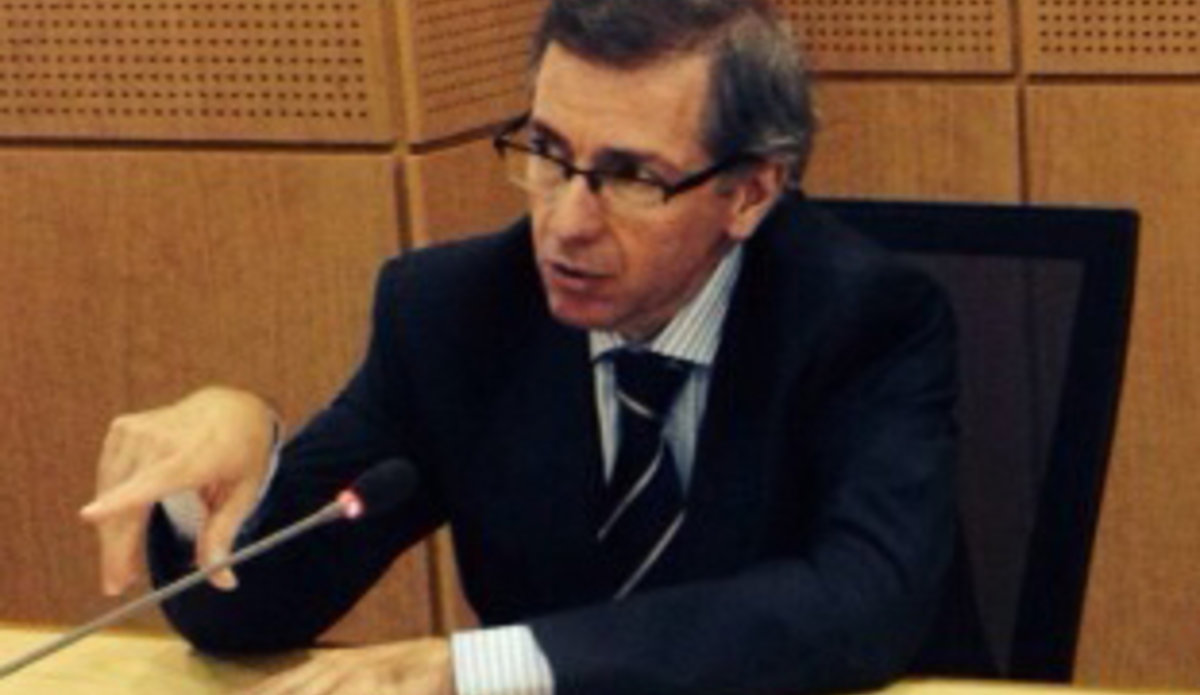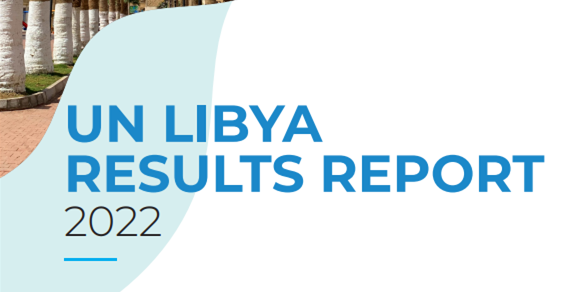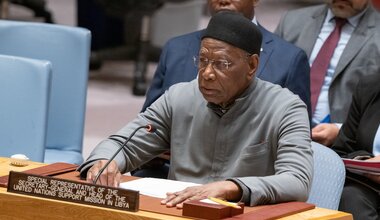SRSG León Calls in Madrid for Coordinated Efforts to Assist Libya’s Transition
Special Representative of the Secretary-General for Libya Bernardino León called at a conference in Madrid on Wednesday 17 September 2014 for coordinated efforts to ensure the success of Libya’s transition, stressing that Libya’s stability is a regional and international interest.
Full text of his address:
Conference on the Challenges of Stability and Development in Libya and Northern Africa
Opening remarks by SRSG Bernardino León
Madrid, 17 September 2014
Honourable Ministers,
Excellences,
Distinguished Guests,
Ladies and Gentlemen,
1. I am honoured to participate in the Conference on the Challenges of Stability and Development in Libya and Northern Africa. I thank the Government of Spain for this timely initiative, which comes at a critical time in Libya’s transition and against the backdrop of complex challenges facing the North African region and beyond.
2. I am heartened by the participation of so many countries in this forum, which I take as a sign of acknowledgment and recognition on the part of the international community regarding the importance of Libya’s stability to the wider region, and of your commitment to the Libyan people in their efforts to rebuild a modern state based on the principles of democracy, respect for human rights and the rule of law.
3. It has been three years since the Security Council passed resolution 2009 (2011) establishing the United Nations Support Mission in Libya. Despite the initial sense of optimism that accompanied the Mission’s establishment, today we find ourselves with a very different political and security landscape in Libya: a faltering political process that has brought the country closer to the brink of protracted conflict and civil strife.
4. On 8 September, I undertook my first official visit to Libya in my capacity as Special Representative of the Secretary-General and Head of the United Nations Support Mission in Libya. Over four days, I had the opportunity to engage in frank and open exchanges with Libyan stakeholders from across the political spectrum. I was reassured by the willingness of all parties to engage constructively with our efforts to explore options for a peaceful way out of the current crisis was evident. All acknowledged the deep political differences and profound sense of mistrust. Yet they all underscored the need to overcome those differences, to end armed hostilities, and for the political process to resume as soon as possible in order to prevent further polarisation and division.
Honourable Ministers, Excellences,
5. Two days ago I spoke before the Security Council. I stressed that the solution to Libya’s current crisis cannot be achieved through military means, but through political consensus based on key principles, including respect for the Constitutional Declaration, the democratic process, the 25 June legislative elections, an end to incitement and provocation, the unequivocal rejection of terrorism, and for a meaningful and inclusive political process. This would have to be accompanied with steps on the security front to enable the State to assert its control over vital installations, and for Government to exercise its authority without the threat of armed intimidation. For Libya to return to the political process, there can be no compromise on these principles. As the international community, we owe it to the Libyan people to insist on this.
6. In my meetings in Libya last week, I reiterated that while the United Nations and the wider international community remain committed to support the Libyan people in rebuilding their country and state institutions, I reminded all parties that the solution to Libya’s current crisis has to be a Libyan one. It would have to be negotiated within the framework of the current political legitimacy that emanated from the elections, including an acknowledgment of the House of Representatives, as the sole legislative authority in the country. Given the precarious situation and the potential for a descent into further chaos and violence, I impressed upon all Libyan parties that the small window of opportunity before us for a peaceful resolution to the current crisis should not be missed. Libya’s leaders will have to act quickly, and seek a political solution through a meaningful and inclusive dialogue.
Honourable Ministers, Excellences,
7. The United Nations will spare no effort in assisting Libyans to narrow existing gaps and overcome the trust deficit that currently divides them. I believe that UNSMIL is uniquely placed to lead international efforts in support of the Libyan transition process. But I also know that the effort to rebuild Libya is not one the United Nations can do alone. The international community’s assistance support and coordinated efforts through the UN will be key to our engagement in Libya.
8. Stabilizing Libya is key to ensuring that the sacrifices made by the Libyan people in their struggle for freedom and dignity are not lost in vain. But stabilizing Libya is also a matter of regional and international interest. A failure to recognize this will have grave consequences not only for Libya, but also for regional and international peace and security. This is why I am particularly pleased with the broad regional representation at today’s gathering. I invite us all to coordinate closely and cooperate wherever possible in enabling Libya’s transition to succeed. This coordinated effort should focus on institutional development, good governance, issues of disarmament, demobilization and reintegration, security sector reform, border control, prevention of radicalism and terrorism and the fight against human trafficking and organized crime.
9. As history has repeatedly shown, security without development is only temporary, and development without security is impossible. The people of Libya long for security, development and prosperity. Concerted efforts are required at the political, security and developmental levels to make Libya’s transition succeed. As Libya’s regional and international partners, I invite us all to send a strong and unified message of support to the Libyan people.
Thank you.
 United Nations Peacekeeping
United Nations Peacekeeping UN
UN








